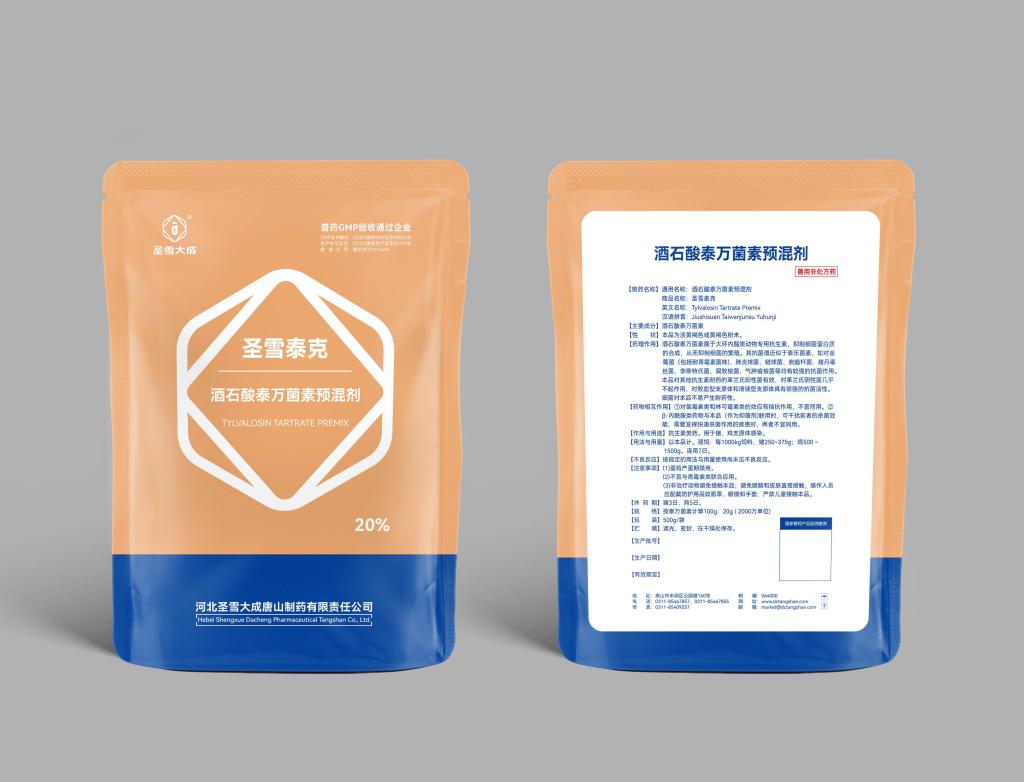Tel:+8618231198596

News
 CONTACT
CONTACT
 CONTACT
CONTACT
- Linkman:Linda Yao
- Tel: +8618231198596
- Email:linda.yao@dcpharma.cn
- Linkman:CHARLES.WANG
- Department:Overseas
- Tel: 0086 0311-85537378 0086 0311-85539701
News
Research investigates the role of tylvalosin tartrate premix in enhancing animal resilience.
TIME:2024-08-27
Understanding Tylvalosin Tartrate
Tylvalosin tartrate is a broad-spectrum antibiotic that is particularly effective against gram-positive bacteria and some gram-negative bacteria. It is commonly used in the treatment and prevention of respiratory and enteric diseases in livestock, including swine, cattle, and poultry.
Stressors in Livestock Farming
Livestock face a variety of stressors that can affect their health and productivity:
Environmental Stress: Heat stress, cold stress, and other climatic factors.
Nutritional Stress: Inadequate nutrition or sudden changes in diet.
Management Stress: Transportation, handling, and changes in social dynamics.
Disease Stress: Exposure to pathogens and the physiological response to infections.
Enhancing Resilience with Tylvalosin Tartrate
Research suggests that tylvalosin tartrate premix formulations can help enhance animal resilience to these stressors by:
Supporting Immune Function: Tylvalosin tartrate can help strengthen the immune system, enabling animals to better respond to stress and infections.
Reducing Inflammation: The anti-inflammatory properties of tylvalosin tartrate can mitigate the effects of stress on the body.
Improving Gut Health: By controlling gut pathogens and supporting a healthy gut microbiome, tylvalosin tartrate can improve digestive efficiency and nutrient absorption, which is critical during periods of stress.
Recent Research Findings
Heat Stress in Swine
Study: A study investigated the effects of tylvalosin tartrate on swine exposed to heat stress.
Outcome: Tylvalosin tartrate was found to improve feed efficiency and reduce the incidence of respiratory diseases, indicating enhanced resilience to heat stress.
Nutritional Stress in Cattle
Study: Researchers explored the impact of tylvalosin tartrate on cattle undergoing nutritional stress due to abrupt changes in diet.
Outcome: Tylvalosin tartrate helped stabilize rumen pH and improve nutrient utilization, suggesting a protective effect against nutritional stress.
Management Stress in Poultry
Study: An investigation looked at the role of tylvalosin tartrate in poultry subjected to transportation stress.
Outcome: Tylvalosin tartrate was associated with reduced stress markers and improved weight gain, indicating enhanced resilience to management stress.
Conclusion
The role of tylvalosin tartrate premix formulations in enhancing animal resilience to stressors is a promising area of research. By supporting immune function, reducing inflammation, and improving gut health, tylvalosin tartrate can help livestock better cope with environmental, nutritional, and management stressors. As the agricultural sector continues to seek sustainable and effective solutions to improve animal welfare and productivity, the potential of tylvalosin tartrate in this context becomes increasingly relevant. Further research is needed to fully understand the mechanisms involved and to develop targeted premix formulations that optimize animal health under various stress conditions.
- Tel:+8618231198596
- Whatsapp:18231198596
- Chat With Skype







